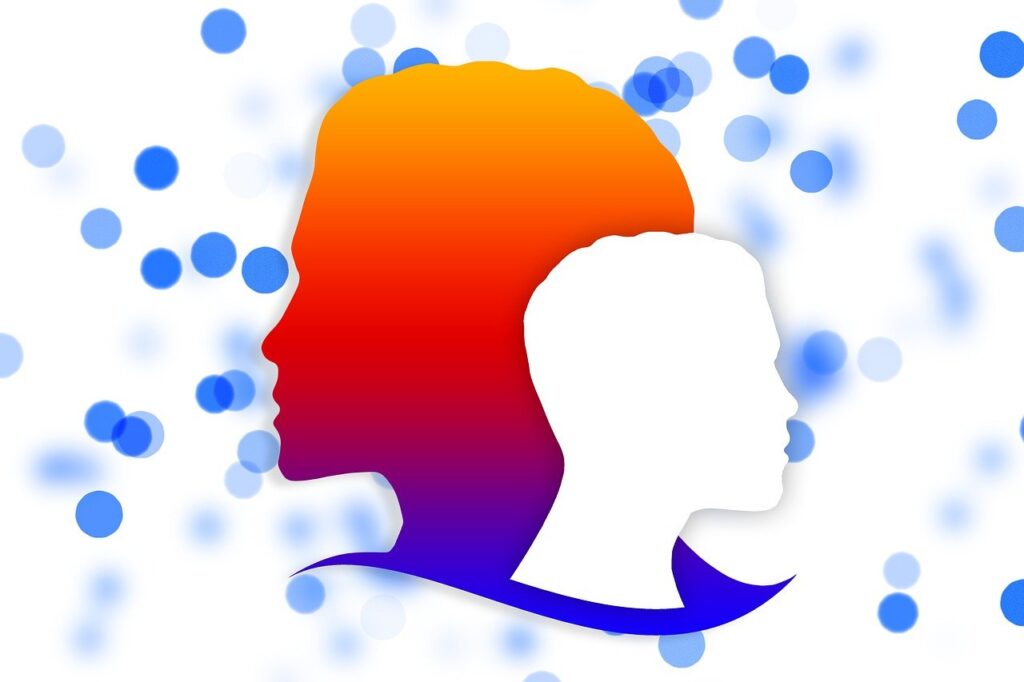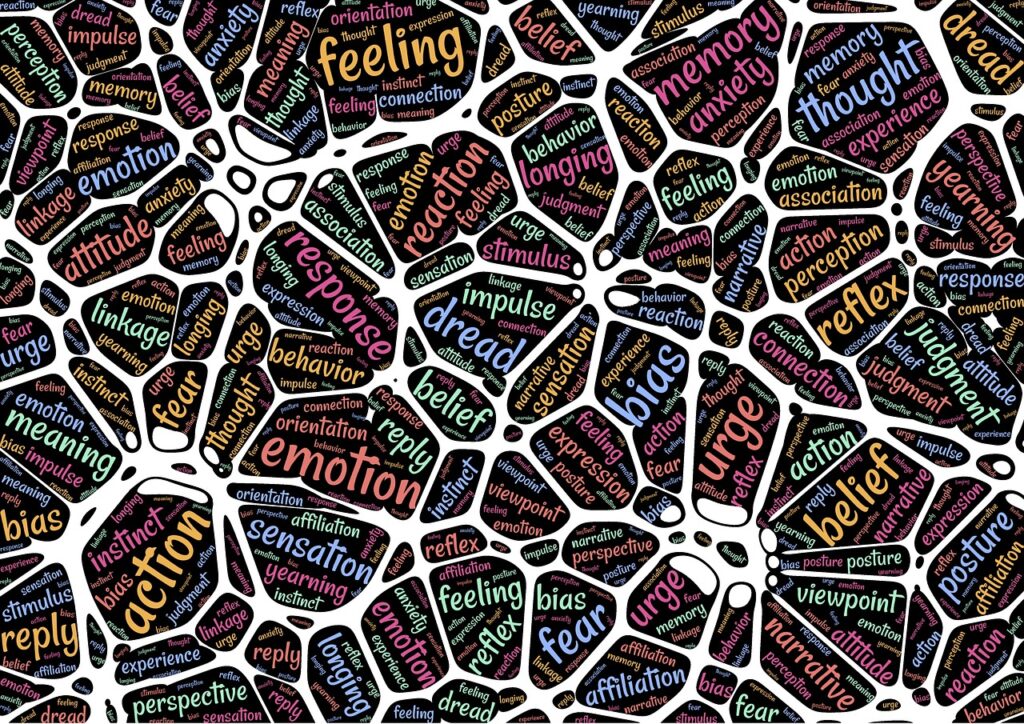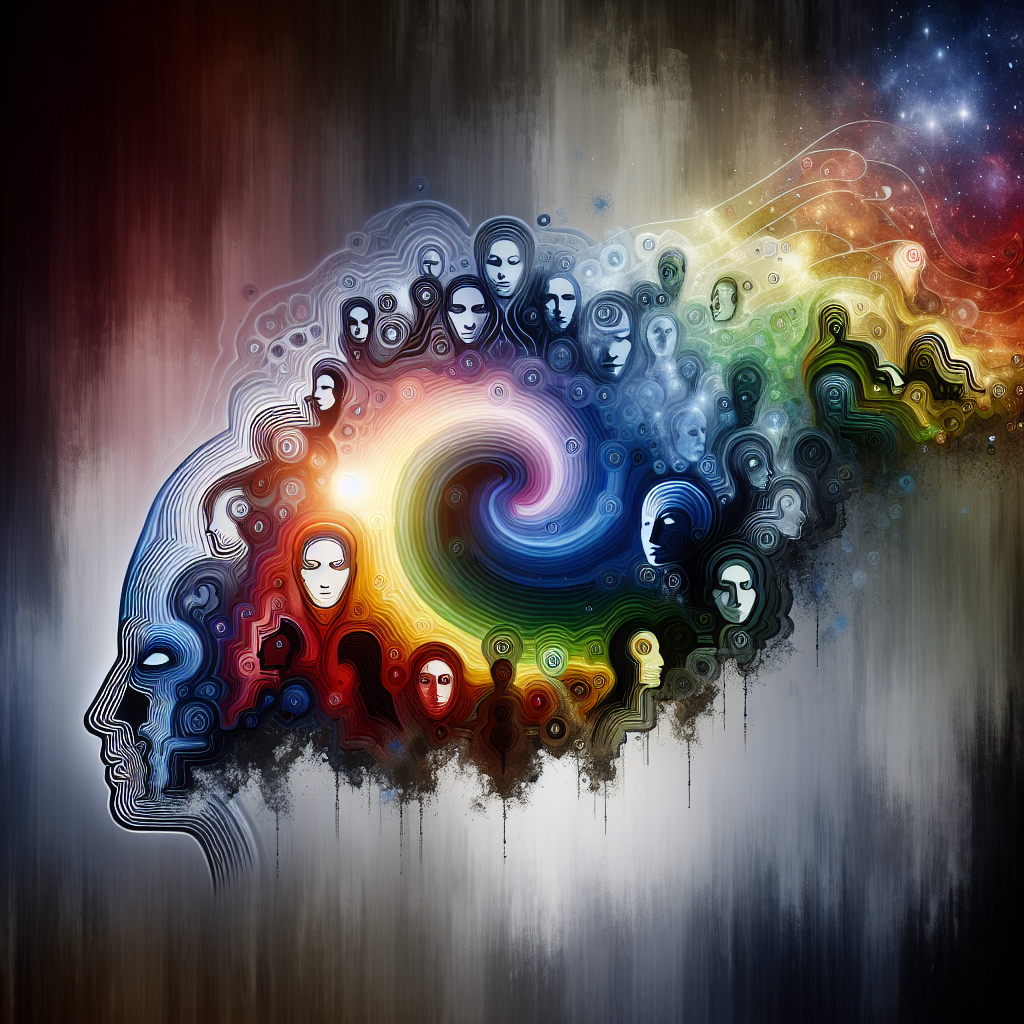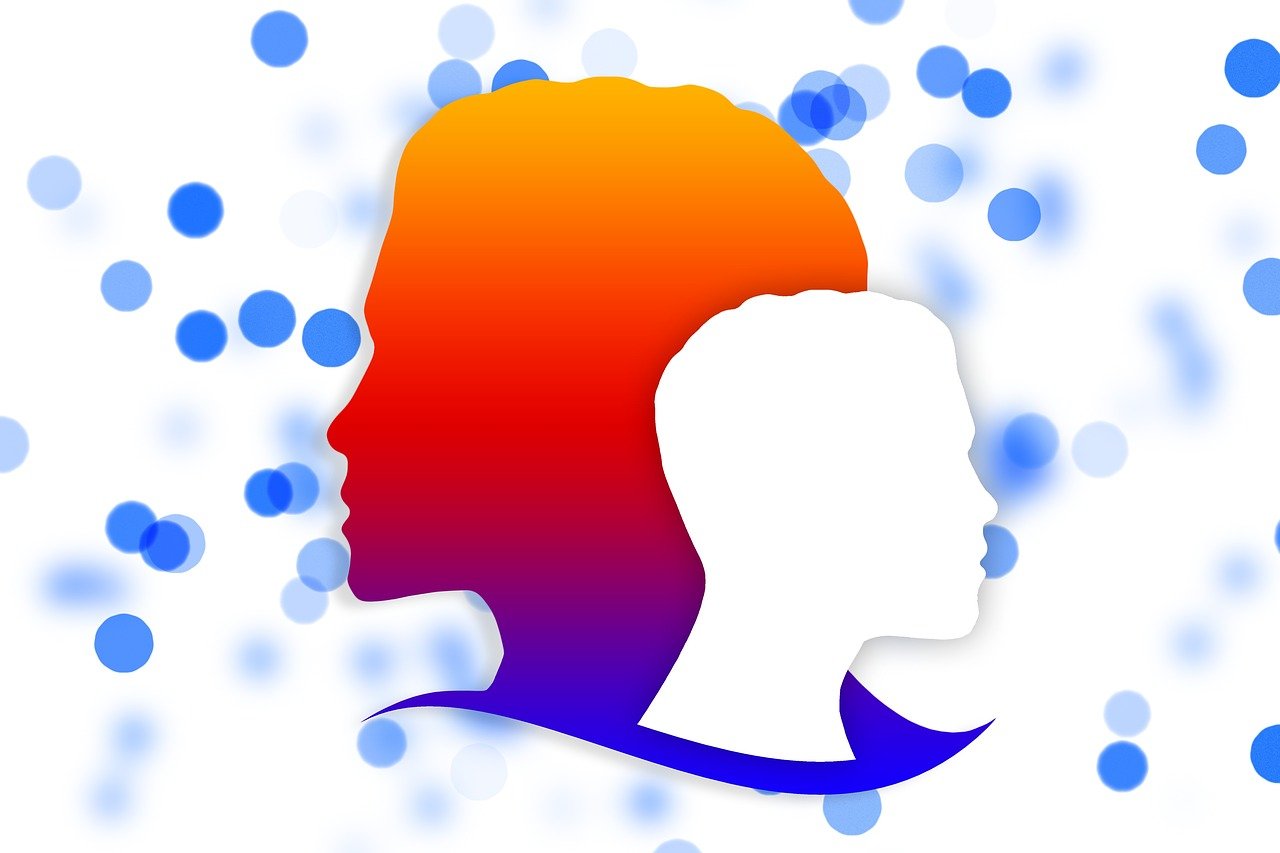Have you ever wondered about the vast range of emotions that we, as humans, experience? From joy and sadness to anger and fear, our emotional spectrum is incredibly diverse. In this article, we will explore the 25 different human emotions, seeking to understand their significance and how they shape our lives. Get ready to delve into the fascinating world of emotions and discover the incredible complexity of our human experience.
Primary Emotions
Joy
Joy is a delightful emotion that is often associated with happiness and pleasure. It is that feeling of elation that overwhelms you when something positive happens or when you experience something that brings you immense satisfaction. Whether it is achieving a personal goal, receiving good news, or spending quality time with loved ones, joy fills your heart and uplifts your spirits. It can manifest as an exuberant burst of laughter, a contagious smile, or even tears of joy streaming down your face. Embrace joy whenever it comes your way, for it is a wonderful emotion that brings light and warmth into your life.
Sadness
Sadness is a universal emotion that we all experience at different points in our lives. It is a natural response to loss, disappointment, or despair. Sadness can arise from various situations, such as the loss of a loved one, a breakup, or a failure. It weighs heavy on your heart, making you feel downcast and melancholic. During moments of sadness, it is important to acknowledge your emotions and allow yourself to grieve. It is through this healing process that you can begin to find solace and move towards emotional recovery. Remember, it is okay to feel sad sometimes, as it is a part of the human experience.
Anger
Anger is a powerful and intense emotion that arises when we feel provoked, threatened, or wronged. It can manifest as a boiling rage or simmering frustration, often accompanied by increased heart rate, clenched fists, and a desire to retaliate. Anger can be both constructive and destructive, depending on how it is expressed and managed. When channeled effectively, anger can motivate you to make positive changes, establish boundaries, or address injustices. However, uncontrolled anger can lead to harmful consequences and strain relationships. It is essential to find healthy ways to manage and express your anger, such as through communication, meditation, or engaging in calming activities.
Fear
Fear is a primal emotion that serves as a natural defense mechanism in response to potential threats or danger. It triggers a physiological response often referred to as the fight-or-flight response, preparing your body to either confront the threat or flee from it. Fear can arise from various situations, such as facing a phobia, encountering a dangerous situation, or experiencing uncertainty. While fear can be paralyzing and overwhelming, it can also be a catalyst for personal growth and resilience. Overcoming your fears allows you to expand your comfort zone and embrace new opportunities. Remember, it is normal to feel fear, but do not let it control or limit your life.
Secondary Emotions
Love
Love is a profound and complex emotion that binds us to others and brings a sense of deep connection and affection. It can take many forms, such as romantic love, familial love, or platonic love. Love encompasses feelings of warmth, compassion, and devotion towards someone or something. When you experience love, you may feel a sense of contentment, happiness, and a desire to prioritize the well-being of the person or thing you love. Love has the power to heal, uplift, and create strong bonds that withstand the test of time. Embrace and cherish the love in your life, for it is a beautiful and transformative emotion.
Hate
Hate is an intense and negative emotion that is characterized by strong feelings of hostility, anger, and aversion towards someone or something. It arises from a deep sense of resentment, often resulting from perceived wrongs, conflicts, or disagreements. Hate can consume individuals and lead to harmful actions, such as discrimination, prejudice, or even violence. It is important to recognize the destructive nature of hate and strive towards empathy, understanding, and peaceful resolution. While it is natural to experience negative emotions, practicing forgiveness and cultivating compassion can help alleviate hate and promote harmony in society.
Guilt
Guilt is an emotion that arises when we believe we have violated our own moral standards or have done something that we consider to be morally wrong. It is often accompanied by feelings of remorse, regret, and self-blame. Guilt can be a motivating factor for personal growth and self-reflection, as it prompts us to acknowledge our mistakes and take responsibility for our actions. However, excessive guilt can lead to self-punishment and prevent us from moving forward. It is important to strike a balance between acknowledging our mistakes, making amends when necessary, and practicing self-compassion.
Shame
Shame is a deeply painful and uncomfortable emotion that arises from a perceived flaw, inadequacy, or violation of social norms. It is an internalized feeling of embarrassment and unworthiness, often accompanied by a desire to hide or withdraw from others. Shame can be debilitating and impact one’s self-esteem and overall well-being. It is important to differentiate between healthy shame, which prompts self-reflection and growth, and toxic shame, which is destructive and self-sabotaging. By cultivating self-compassion, seeking support from others, and challenging negative self-beliefs, you can begin to heal from shame and embrace your authentic self.
Envy
Envy is an emotion that arises when we desire what others have and feel resentful or dissatisfied with our own circumstances. It often stems from feelings of inadequacy, comparison, and a perceived sense of unfairness. Envy can be detrimental to our well-being, as it can lead to bitterness, discontentment, and strained relationships. It is important to recognize that everyone’s journey is unique and that focusing on gratitude and self-improvement can help alleviate envy. Celebrate the achievements of others and embrace your own journey, for comparison only hinders your own growth and happiness.
Jealousy
Jealousy is a complex emotion that arises from a perceived threat to a valued relationship or possession. It involves feelings of insecurity, possessiveness, and fear of losing someone or something to a rival. Jealousy can be triggered by situations such as romantic competition, professional rivalry, or even friendships. It is crucial to address and communicate feelings of jealousy in a healthy and constructive manner, as unchecked jealousy can lead to distrust, resentment, and damaged relationships. Open and honest communication, practicing trust, and fostering self-confidence are essential in navigating and resolving feelings of jealousy.

Composite Emotions
Pride
Pride is an emotion that arises from a sense of accomplishment, self-worth, and satisfaction in one’s achievements, traits, or identity. It involves feelings of confidence, self-respect, and a sense of fulfillment. Pride can manifest in various aspects of life, including personal achievements, cultural heritage, or even belonging to a specific group or community. While pride can be a positive and empowering emotion, it is important to differentiate between healthy pride and excessive pride or arrogance. Healthy pride motivates and empowers individuals, while excessive pride can alienate others and hinder personal growth. Embrace and celebrate your achievements and identity, but remain humble and open to learning from others.
Hope
Hope is a resilient and uplifting emotion that fuels optimism and belief in the possibility of a positive future. It is an outlook that allows you to envision and strive towards your goals and dreams, even in the face of adversity or uncertainty. Hope provides a sense of purpose, encouragement, and resilience. It helps you navigate challenges, maintain motivation, and find meaning in your journey. Embrace hope as a guiding force in your life, for it has the power to inspire, transform, and bring forth new possibilities.
Disappointment
Disappointment is a common emotion that arises when our expectations are not met, or we experience a sense of loss or letdown. It can be triggered by various situations, such as failed plans, unfulfilled desires, or unmet expectations from others. Disappointment often leads to feelings of sadness, frustration, or even anger. It is important to navigate disappointment by acknowledging and validating your emotions while practicing acceptance and resilience. Use disappointment as a tool for growth, learning, and reassessing your goals and expectations. Remember that setbacks are a natural part of life, and they can pave the way for unexpected opportunities and experiences.
Surprise
Surprise is an emotion that arises from unexpected or unforeseen events, experiences, or information. It is characterized by a momentary pause or shock, followed by a range of emotions depending on the nature of the surprise. Surprise can be positive, such as receiving a pleasant gift or a surprise party, eliciting feelings of joy and excitement. On the other hand, it can also be negative, such as receiving devastating news, leading to feelings of shock and disbelief. Embrace surprise as a reminder of life’s unpredictability and allow yourself to experience the range of emotions it brings forth. In moments of surprise, you have the opportunity to adapt, learn, and grow.
Relief
Relief is an emotion that arises when a distressing or challenging situation comes to an end or when a burden is lifted. It brings a sense of comfort, tranquility, and release from stress or tension. Relief can be experienced after completing a difficult task, receiving good news, or resolving a conflict. It is a moment of respite and can restore a sense of balance and well-being. Embrace and savor moments of relief, for they provide an opportunity to recharge, reflect, and appreciate the journey you have undertaken.
Gratitude
Gratitude is a powerful and transformative emotion that arises from recognizing and appreciating the positive aspects of life. It involves acknowledging the goodness, kindness, and blessings that exist within and around you. Gratitude can be expressed towards others, oneself, or even towards the simple pleasures and moments that bring joy and fulfillment. Cultivating gratitude is essential for overall well-being, as it promotes positivity, resilience, and fosters healthy relationships. Take time each day to reflect and express gratitude for the abundance in your life, for gratitude has the power to shift your perspective and cultivate a sense of joy and contentment.
Regret
Regret is an emotion that arises when we feel remorse or disappointment over past actions or choices. It involves acknowledging and accepting that different choices or behaviors may have led to a more desirable outcome. Regret can be a catalyst for personal growth and reflection, as it encourages you to reassess your values, priorities, and decision-making processes. It is important, however, to differentiate between healthy regret and excessive self-blame. While regret can be a valuable teacher, excessive dwelling on past mistakes can hinder personal growth and hinder progress. Embrace regret as an opportunity to learn, grow, and make more informed choices in the future.
Resentment
Resentment is a complex emotion that arises from feelings of bitterness, anger, and unresolved grievances. It usually stems from a perceived injustice, mistreatment, or unmet expectations from others. Resentment can be detrimental to one’s well-being, as it often leads to toxic thoughts, strained relationships, and hindered personal growth. It is important to address and process feelings of resentment through open and honest communication, assertiveness, and practicing forgiveness. Letting go of resentment allows you to cultivate emotional freedom, restore harmony in relationships, and focus on your personal growth and happiness.
Self-Conscious Emotions
Embarrassment
Embarrassment is a self-conscious emotion that arises from feelings of shame, discomfort, or humiliation, often due to real or perceived social mishaps or failures. It can range from mild blushing to extreme distress, depending on the nature of the situation. Embarrassment often arises from a fear of judgment or negative evaluation from others. It is important to acknowledge that everyone experiences moments of embarrassment, and it does not define your worth or character. Practice self-compassion, learn from your experiences, and focus on personal growth rather than dwelling on moments of embarrassment.
Shyness
Shyness is a personality trait characterized by feelings of discomfort, self-consciousness, and a tendency to avoid or withdraw from social interactions. It often stems from a fear of judgment, criticism, or rejection. Shyness can manifest differently in individuals, ranging from mild reticence to severe anxiety in social situations. It is important to recognize that shyness is a normal part of the human experience and that everyone has their unique comfort levels in social settings. Embrace your shyness and focus on building confidence gradually by engaging in small social interactions, seeking support, and practicing self-acceptance.
Humiliation
Humiliation is an intense and deeply painful emotion that arises from feelings of shame, degradation, or powerlessness in front of others. It often stems from public embarrassment, ridicule, or acts of humiliation inflicted by others. Humiliation can have long-lasting psychological and emotional impacts, leading to diminished self-esteem, social withdrawal, and trust issues. If you have experienced humiliation, it is vital to seek support from trusted individuals, engage in healing activities such as therapy, and practice self-compassion. Remember that you deserve respect and empathy, and no one should endure humiliation or degradation.

Social Emotions
Empathy
Empathy is a fundamental social emotion that involves the ability to understand and share the feelings, perspectives, and experiences of others. It goes beyond sympathy and extends to genuinely connecting with others on an emotional level. Empathy allows you to put yourself in someone else’s shoes, providing comfort, validation, and support in times of need. Cultivating empathy not only enhances your relationships but also promotes kindness, understanding, and acceptance in society. Practice active listening, non-judgment, and compassion towards others, for empathy is the foundation of healthy connections and meaningful interactions.
Compassion
Compassion is a deep sense of empathy and concern for the well-being of others. It involves recognizing and responding to the suffering or challenges faced by individuals or communities, with a desire to alleviate their pain and promote their welfare. Compassion is an essential element in building a kind and nurturing society. Engage in acts of kindness, volunteer in your community, and practice selflessness to cultivate compassion within yourself and inspire it in others. Remember, even small acts of compassion can create a ripple effect and have a profound impact on those around you.
Sympathy
Sympathy is an emotion that arises from a sense of understanding and pit, towards someone who is experiencing hardship or distress. It involves acknowledging and expressing sorrow or concern for another person’s pain, without necessarily experiencing the exact emotions they are going through. Sympathy is an important aspect of emotional support and shows that you care about others’ well-being. It is important to offer sympathy with openness, warmth, and a willingness to help, while respecting the boundaries and individual experiences of others.
Pity
Pity is an emotion that arises from a feeling of sorrow or sadness towards someone’s suffering or unfortunate circumstances. It involves recognizing the imbalance of power or the disadvantaged position of another individual and feeling sorry for their situation. While pity can be well-intentioned, it can also create a sense of superiority or distance from the person being pitied. It is important to approach pity with empathy, respect, and a focus on empowering individuals rather than perpetuating a sense of victimhood. Instead of pitying, strive to uplift and support others through genuine understanding, compassion, and meaningful actions.
Contempt
Contempt is a negative social emotion that involves feelings of disgust, disdain, or superiority towards another person or group. It arises from a sense of devaluation and often manifests through disrespectful behaviors, ridicule, or dismissive attitudes. Contempt can be toxic to relationships and communities, as it fosters division, hostility, and a lack of empathy. It is important to challenge feelings of contempt and strive towards understanding, respect, and open-mindedness. Embrace the diversity of perspectives, practice active listening, and cultivate empathy to overcome contempt and promote harmonious relationships.
Cognitive Emotions
Confusion
Confusion is a cognitive emotion that arises when we feel uncertain, puzzled, or disoriented in response to new information, complex situations, or conflicting ideas. It involves a temporary disruption of cognitive processes and can often lead to frustration or anxiety. Confusion is a normal part of the learning process, as it signals the need to seek clarification, examine different perspectives, and integrate new knowledge. Embrace confusion as an opportunity for growth and engagement, and be persistent in seeking understanding and knowledge that will help you navigate the complexities of life.
Curiosity
Curiosity is a natural and innate cognitive emotion that drives us to seek knowledge, explore the unknown, and satisfy our thirst for understanding. It involves a genuine interest, excitement, and desire to learn, discover, and experience new things. Curiosity opens our minds to new possibilities, fuels creativity, and encourages lifelong learning. Embrace and nurture your curiosity, as it is a powerful tool for personal growth, intellectual stimulation, and expanding your horizons. Cultivate a sense of wonder, ask questions, and explore the world with an open mind.
Surprise
Surprise, as mentioned earlier, is an emotion that arises from unexpected or unforeseen events, experiences, or information. It can play a significant role in our cognitive processes, facilitating attention, memory, and learning. When we experience surprise, our mind pauses to process the unexpected, forming new connections and expanding our mental frameworks. Surprise can stimulate curiosity, engage our attention, and inspire further exploration. Embrace the element of surprise in your life, for it can invigorate your thinking, spark inspiration, and lead you on unexpected and exciting paths of discovery.

Mixed Emotions
Anxiety
Anxiety is a complex and prevalent emotion characterized by feelings of worry, unease, and apprehension. It often arises in response to perceived threats, uncertainties, or future-oriented concerns. Anxiety can manifest through various symptoms, such as racing thoughts, restlessness, difficulty concentrating, or physical discomfort. While mild anxiety can be a normal and adaptive response to life’s challenges, excessive and persistent anxiety can be debilitating and impact daily functioning. It is important to seek support, practice self-care, and develop coping mechanisms to manage anxiety effectively. Remember, you are not alone, and there are resources available to help you navigate anxiety and promote well-being.
Stress
Stress is a prevalent emotion that arises when we experience a high level of demand or pressure, often accompanied by feelings of tension, irritability, or overwhelmed. Stress can be triggered by various factors, such as work deadlines, relationship conflicts, or major life changes. While mild stress can motivate us and enhance performance, chronic and excessive stress can have detrimental effects on physical and mental health. It is crucial to establish healthy coping strategies to manage stress, such as engaging in relaxation techniques, practicing time management, or seeking support from loved ones. Prioritizing self-care, setting boundaries, and finding balance in life are essential to effectively manage and minimize stress.
Excitement
Excitement is a positive and energizing emotion that arises when we anticipate something pleasurable, thrilling, or significant. It involves feelings of enthusiasm, eagerness, and anticipation. Excitement can be experienced in various contexts, such as embarking on a new adventure, achieving a long-awaited goal, or even receiving positive news. It is a vibrant and contagious emotion that invigorates and uplifts us. Embrace and savor moments of excitement, for they infuse your life with joy, motivation, and a sense of vitality.
Boredom
Boredom is an unpleasant and uncomfortable emotion that arises when we lack interest, stimulation, or purpose in our current activities or surroundings. It manifests as a feeling of restlessness, dissatisfaction, or a sense of time dragging. Boredom can be a signal that it’s time to seek new challenges, find meaningful engagement, or explore different interests. It is important to recognize that boredom is an opportunity for personal growth and self-discovery. Rather than succumbing to boredom, pursue activities that spark your curiosity, challenge your skills, and ignite your passion. Embrace novelty and find beauty in the simplest of things to overcome boredom and lead a fulfilling life.
Aesthetic Emotions
Awe
Awe is a powerful and profound emotion that arises when we encounter something extraordinary, mesmerizing, or beyond our usual comprehension. It involves a sense of wonder, reverence, and a feeling of smallness in the presence of something grand or sublime. Awe can be evoked when witnessing natural wonders, experiencing great works of art, or contemplating the vastness of the universe. It leaves us feeling humbled, connected, and filled with a sense of transcendence. Embrace and cultivate moments of awe in your life, for they provide an opportunity to appreciate the beauty and magnitude of existence.
Beauty
Beauty is an aesthetic emotion that arises from perceiving and appreciating qualities such as harmony, symmetry, balance, or elegance. It can be found in various forms, such as art, nature, or even in human relationships. Beauty evokes feelings of delight, awe, and an uplifting sense of joy. Embrace the beauty that surrounds you, whether it be a breathtaking sunset, a captivating melody, or an act of kindness. Cultivating an appreciation for beauty enhances your well-being, nourishes your soul, and opens your eyes to the wonders of the world.
Ugliness
Ugliness is an aesthetic emotion that arises when we encounter qualities or aspects that deviate from generally accepted standards of beauty. It can elicit feelings of discomfort, repulsion, or even sadness. While ugliness is subjective and varies from person to person, it is important to approach it with empathy and understanding. Society often perpetuates certain beauty standards, but it is essential to recognize the diversity and inherent beauty in all things and individuals. Embrace inclusivity, challenge societal norms, and appreciate the uniqueness and complexity that lies within what may be perceived as ugly.

Existential Emotions
Wonder
Wonder is an existential emotion that arises when we are captivated by the mysteries, complexities, and limitless possibilities of the universe. It involves a sense of curiosity, awe, and contemplation in the face of the unknown. Wonder encourages us to question, explore, and seek meaning in our existence. It reminds us of the vastness of the world and our place within it. Embrace moments of wonder, whether it be stargazing, pondering the depths of the ocean, or exploring the wonders of science. Cultivate a mindset that nurtures curiosity and a sense of wonder, for it can awaken a profound appreciation for the beauty and complexity of life.
Amazement
Amazement is an existential emotion that arises when we encounter something extraordinary, astonishing, or mind-boggling. It involves feelings of surprise, admiration, and an overwhelming sense of marvel. Amazement can be evoked by various experiences, such as witnessing incredible feats, discovering new knowledge, or even reflecting on the vastness of the universe. It leaves us in awe of the wonders that exist, sparking our curiosity and promoting growth. Embrace and savor moments of amazement, for they remind us of the extraordinary nature of life and our ability to be amazed by the world around us.
Elation
Elation is a profound and intense emotion that arises from experiencing extreme joy, euphoria, or intense happiness. It is a state of pure exhilaration and can be triggered by significant accomplishments, moments of triumph, or deep personal connections. Elation is often accompanied by a surge of energy, an infectious smile, and a sense of boundless enthusiasm. Embrace and relish moments of elation, for they provide an opportunity to tap into the immense joy and vitality within you. It is a reminder that life is filled with remarkable experiences and that you are capable of experiencing incredible heights of happiness.
Melancholy
Melancholy is an existential emotion that arises from a mix of sadness, nostalgia, and a bittersweet longing for something lost or unattainable. It is often associated with reflection, introspection, and a deep contemplation of the human condition. Melancholy can be evoked by various experiences, such as reflecting on past memories, philosophical ponderings, or even contemplating the passage of time. While melancholy may seem melancholic at first glance, it holds a certain beauty in its ability to evoke a range of emotions and foster deeper connections with oneself and the world. Embrace moments of melancholy as an opportunity for self-reflection, creative inspiration, and a deeper appreciation of the richness and complexities of life.
Morality Emotions
Guilt
Guilt, as mentioned earlier, is an emotion that arises when we believe we have violated our own moral standards or have done something that we consider to be morally wrong. It involves feelings of remorse, regret, and self-blame. Guilt serves as an internal compass, prompting us to acknowledge our mistakes, take responsibility for our actions, and make amends when necessary. It offers an opportunity for growth, self-improvement, and reconciling our behavior with our values. Embrace guilt as a reminder of your moral compass and strive towards making choices that align with your core principles.
Shame
Shame, as discussed earlier, is a self-conscious emotion that arises from a perceived flaw, inadequacy, or violation of social norms. It involves a sense of embarrassment, unworthiness, and a desire to hide or withdraw. Shame can be detrimental to our self-esteem, well-being, and overall mental health if left unaddressed. It is important to distinguish between healthy shame, which promotes self-reflection and personal growth, and toxic shame, which perpetuates feelings of unworthiness and self-sabotage. By practicing self-compassion, seeking support, and challenging negative self-beliefs, you can overcome shame and cultivate a healthier relationship with yourself.
Remorse
Remorse is an emotion that arises from a deep sense of regret, sorrow, or repentance for past actions or choices. It involves acknowledging the pain or harm caused to others and feeling a genuine desire to make amends. Remorse demonstrates empathy, accountability, and a willingness to learn from one’s mistakes. It is important to genuinely express remorse, apologize when necessary, and take steps to rectify the harm inflicted. By doing so, you can foster healing, restore trust, and promote personal growth and positive change.
In conclusion, human emotions are diverse and complex, encompassing a wide range of experiences that shape our lives and interactions with others. From the primary emotions of joy, sadness, anger, and fear to the secondary, self-conscious, social, cognitive, mixed, aesthetic, existential, and morality emotions, each emotion plays a significant role in our well-being, relationships, and personal growth. Embrace and acknowledge your emotions, for they are an integral part of being human. By cultivating self-awareness, emotional intelligence, and practicing empathy and compassion towards yourself and others, you can navigate and embrace the rich tapestry of emotions that make up the human experience.


